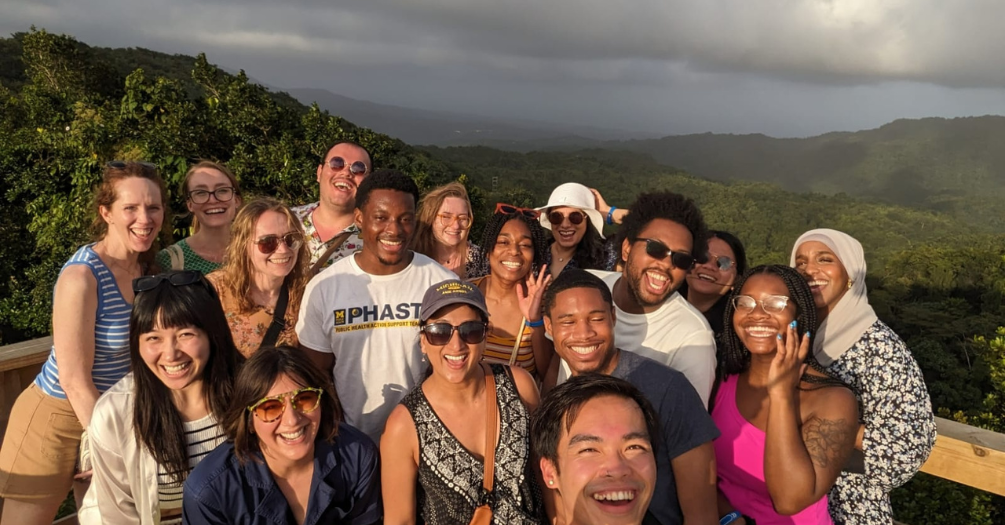A Reflection on Collectivisim and Community-Centerdness in Grenada

Darius Moore
2nd Year MPH Health Behavior Health Education Candidate
In reflecting on my weeklong experience in Grenada, an aspect of my time there that has stood out to me was the widespread sense of community and altruism among the Grenadian people. Although this characteristic was very salient in my fieldwork with the Grenada Red Cross Society and our conversations with local community members, there was one particular moment that resonated with me and how I have come to understand community-based initiatives.
This moment occurred on a busy Tuesday morning as our driver, Jason was navigating rush-hour traffic to bring us to the Grenada Red Cross headquarters. As I watched us pass the long lines of cars that filled the streets and the crowds of pedestrians on the sidewalks, there was a broadcast on the radio about crime in Grenada. I am not sure of the specific events that the reporter was addressing. However, what caught my attention was how she framed criminal acts as wrong, not because they are illegal, but because they are a grievance against one’s fellow countrymen. Moreover, the reporter spoke to how crimes are unbecoming of Grenada’s vision for itself going forward from its 50th year of independence—one people, one journey, one future.
This message was fascinating to me because in the context of the United States, specifically as someone who grew up in Chicago, there is no humanity for people who go against the law. Of note, legislation exists to provide structure and order to our society; however, there is much to critique about the gaps and lack of safety nets within legislation that spur crime among vulnerable populations, only to later prosecute them for their actions. When hearing this message, I could only think about the many people who fall victim to the United States justice system simply because they did not have the proper resources to escape hardships due to poverty, stigma, discrimination, and/or lack of education.
While I understand that Grenada and its people are not perfect, this message has made me think about what our world could look like if we led with altruism instead of punishment. If we called people in to better them instead of perceiving people as disposable. In reflecting on these thoughts, I am reminded of a quote from Octavia E. Butler’s novel Parable of the Talents.
Partnership is giving, taking, learning, teaching, offering the greatest possible benefit while doing the least possible harm. Partnership is a mutualistic symbiosis. Partnership is life.
As a society, we are all in partnership with each other, and for us to be able to advance, grow, and lead healthy lives, we need to recognize the humanity that is within everyone, not just the people who we believe are deserving of it. For me, this is one of many principles for community-based work: not only the idea that everyone should have equitable access to resources and services in order to have positive health outcomes but also that everyone is a part of our community and that our individual actions can impact to the health and wellbeing of ourselves and others. For that reason, we should seek to make positive impacts not only for ourselves but also for others too.
